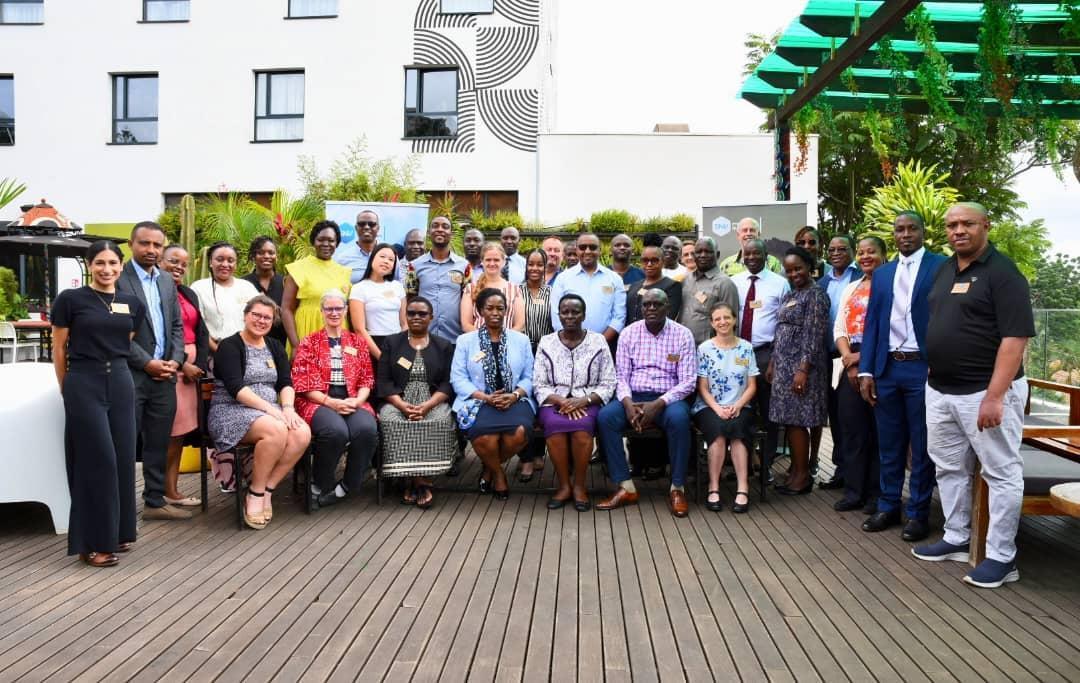Africa-Press – Uganda. Key stakeholders from across East Africa gathered in Kampala last week for a three-day regional visioning workshop aimed at transforming school feeding systems in the region.
Organised by SNV, the event brought together government representatives, regional actors, private sector players, implementing organisations, and donors to drive a shared goal: ensuring that every child in East Africa receives at least one nutritious meal per day while at school.
The workshop was officially opened by Dr. Kedrace Turyagyenda, the Permanent Secretary for Education and Sports.
“Our partnership with SNV since 2016 has transformed school feeding and nutrition in Uganda, with nearly one million learners now consuming milk daily,” she said.
Emphasising the importance of a collaborative strategy, Dr. Turyagyenda highlighted the role of the National School Milk Task Force in providing critical oversight.
She also noted the success of a nationwide awareness campaign that has effectively mobilised parental involvement.
From 2016 to 2024, SNV’s School Milk Programme (SMP) reached close to one million students across Uganda, enabling the daily consumption of more than 130,000 litres of milk.
The programme adopts a parent-driven model to improve child nutrition, reduce short-term hunger, and create market linkages for smallholder dairy farmers.
“This workshop builds on the successes of the School Milk Programme in Uganda, representing a pivotal opportunity for scale-up of school feeding in East Africa,” said Phomolo Maphosa, SNV Uganda’s Country Director.
“By bringing together the region’s most influential actors, we are creating an opportunity to align efforts, share innovations, and develop coordinated approaches that will benefit millions of schoolchildren,” she elaborated.
Julien Butoyi, National Director for School Feeding at Burundi’s Ministry of Education, echoed, “There are so many organisations that are meeting for the first time at this platform, who come together to solve joint issues.”
The workshop aimed to boost collective impact through coordinated action, with discussions centred on four key areas:
Sustainable Funding Models: Exploring innovative financing options beyond current government funding.
Strengthening Supply Chains: Tackling issues related to quality, quantity, and consistency in home-grown school feeding.
Climate-Resilient Production: Promoting regenerative agriculture and sustainable food systems.
Clean Cooking Solutions: Advancing renewable energy technologies for institutional kitchens.
The programme began with field visits to SNV partner sites, showcasing integrated approaches to school feeding. Delegates toured four key locations representing different facets of the ecosystem:
GrainPulse- A climate-resilient grain processor ensuring stable supply chains.
Sanyu Babies’ Home- A model for clean cooking using solar hot water and solar electric cooking to boost energy efficiency and reduce costs.
Gimu Yoghurt- A local yogurt producer enhancing the nutritional value of school meals.
Pearl Dairies (Lato)- A large-scale dairy processor linking smallholder farmers with institutional markets.
Drawing on its extensive experience in Uganda, Ethiopia, and Burundi, SNV showcased how its school milk initiatives have not only improved access to nutritious dairy products but also supported local value chains.
By the workshop’s conclusion, participants had formed collaborative platforms to develop actionable strategies and drive the collective ambition forward.
These partnerships aim to foster a robust regional school feeding ecosystem, where interconnected initiatives can flourish.
With six decades of global experience, SNV continues to strengthen local capacities and catalyse partnerships to transform the agri-food, energy, and water sectors, advancing sustainable and equitable livelihoods for all.
For More News And Analysis About Uganda Follow Africa-Press






